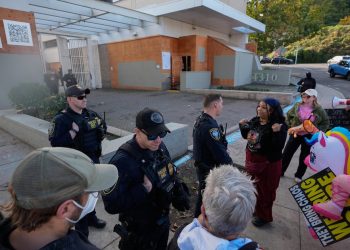Air travel could face more disruption as government shutdown enters its 20th day, with air traffic controllers beginning to show “frustration” at their delayed compensationTransportation Secretary Sean Duffy told Fox & Friends and CNBC’s Squawk Box on Monday.
According to Duffy, some 13,000 air traffic controllers, charged with patrolling the skies and directing air traffic, are among those workers looking for other ways to make money while going without a paycheck while funding expires.
They are scheduled to be paid again on Oct. 28, but they may not receive their salaries if the government shutdown persists, Duffy said. Because the Federal Aviation Administration defines air traffic controllers as essential workersthey are required to remain on the job during government shutdowns even if they are not paid, although they are guaranteed back pay once lawmakers restore government funding.
“They received partial pay a week ago Tuesday. Their next paycheck comes a week after Tuesday. Out of that paycheck there will be no money. They’re not getting paid,” Duffy said. “(We) heard they’re taking jobs at Uber. They’re doing DoorDash, they’re (finding) ways to keep their families afloat.”
Since the government shutdown began on October 1, some flights and airports experienced delays due to the shortage of air traffic controllers, particularly in Burbank, California; Denver, Colo.; and Newark, New Jersey, according to federal flight data released earlier this month.
The number of workers calling in sick could increase as the next payday approaches, Duffy added, which could lead to more delays than usual.
“I think it would be difficult for the traveling public,” he said.
If the shutdown continues, some air traffic controllers and other federal employees could leave for jobs in the private sector, Duffy warned.
“What we have seen is that a number of workers are deciding to leave government and go elsewhere,” he said.
The nation already faces a shortage of air traffic controllerswith approximately 35% of trainees failing to complete the intensive three-month course required for certification. A review of CBS News data found that more than 90% of air traffic control towers in the United States are currently understaffed.









